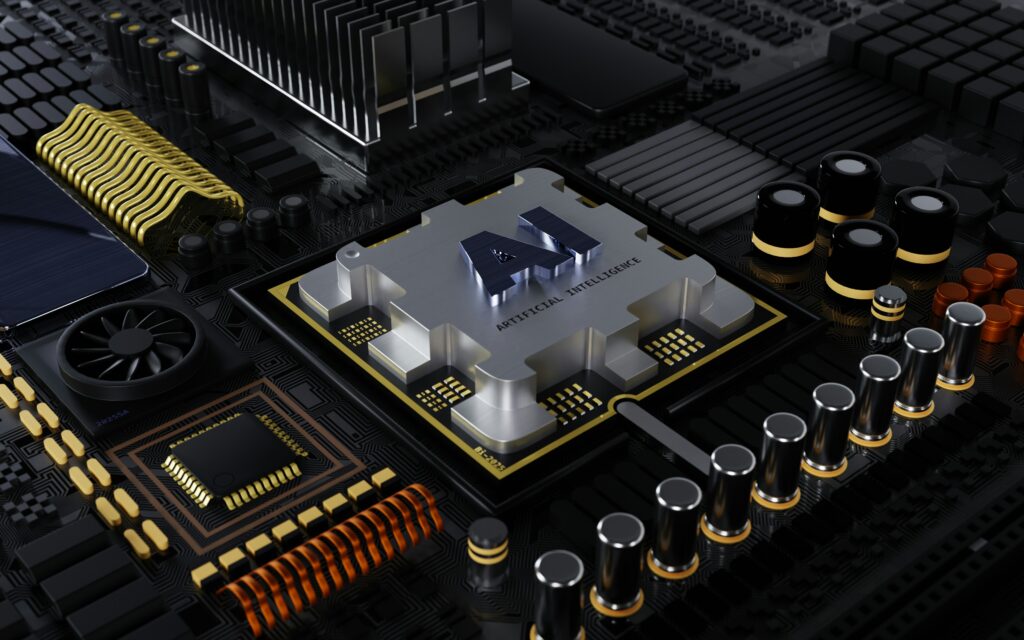Comprehensive Guide: How Much Does Artificial Intelligence Cost?
As artificial intelligence (AI) continues to shape industries, businesses are increasingly asking, “how much does artificial intelligence cost?” The financial commitment required for AI integration can be substantial and varies greatly depending on myriad factors, including project scope, technology choices, and whether to work with a reliable software development company or leverage software outsourcing in Vietnam. This article aims to provide a comprehensive analysis of the costs associated with AI, helping organizations understand what they need to budget for successful implementation.

How much does artificial intelligence cost?
The Growing Demand for AI Solutions
AI adoption is surging across various sectors, with businesses seeking to enhance efficiency and innovation. According to McKinsey, organizations integrating AI can experience productivity increases of 20-30%. This compelling statistic emphasizes the potential return on investment, prompting many companies to explore artificial intelligence cost. With the AI market projected to reach $190 billion by 2025, understanding these costs is crucial for any business considering this transformative technology. Moreover, insights into how artificial intelligence is transforming the world illustrate the profound impact it has on various industries.

AI Future (Source: USM)
Factors Influencing AI Costs
Project Scope and Complexity
The first factor influencing the cost is the scope and complexity of the AI project. For example, a basic chatbot can range from $5,000 to $20,000, while a sophisticated machine learning model for predictive analytics might exceed $1 million. A report from Deloitte found that 70% of organizations faced budget overruns in AI projects due to unforeseen complexities. Therefore, defining the project scope accurately is essential when evaluating how much does artificial intelligence cost.
Technology Stack
The technology stack chosen for an AI project significantly impacts costs. Organizations often face the decision of selecting between proprietary software and open-source frameworks. While open-source options like TensorFlow may reduce upfront licensing fees, they often require more investment in skilled developers. According to a 2021 IDC survey, companies utilizing open-source technologies reported a 30% reduction in overall software costs, indicating that the choice of technology can have long-term financial implications when assessing how much does artificial intelligence cost.
Development and Maintenance
Development costs also vary based on whether companies opt for in-house development or outsourcing. While in-house teams may provide more control, they often incur higher labor costs. Partnering with a software development company can lead to more efficient project execution. Outsourcing to Vietnam, where labor costs are significantly lower, can yield savings of up to 60% compared to Western countries. A report by Accenture highlighted that 65% of companies experienced reduced costs and improved project timelines by outsourcing AI projects, reinforcing the need to consider these factors when evaluating artificial intelligence costs.
Data Acquisition and Management
A critical aspect of AI costs is data management. High-quality data is essential for successful AI implementations, yet many organizations underestimate the costs associated with data acquisition, cleaning, and management. According to the Data Management Association, businesses allocate 30% of their total IT budgets to data management. This includes the expenses related to the infrastructure needed to support data operations, which can significantly affect the overall budget when determining how much does artificial intelligence cost.
Training and Support
Implementing AI systems requires ongoing training and support, which can add considerable expenses. A 2020 Deloitte survey indicated that companies typically spend an average of $150,000 annually on training for AI systems. These costs include staff training to operate new AI tools and systems, along with ongoing expenses for system updates and maintenance. Organizations must recognize these recurring costs as part of their overall budgeting strategy for AI projects.
Get in touch with Savvycom for a free consultation. We’ll help you decide on next steps, explain how the development process is organized, and provide you with a free project estimate.
Pricing Models for AI Solutions
Understanding the pricing models available for AI solutions can help businesses navigate their financial planning. Here are the most common models:
-
Fixed Price Model
This model provides clarity in budgeting and is suitable for projects with well-defined requirements. However, any modifications or expansions can lead to additional costs. Gartner found that 50% of fixed-price projects experienced scope creep, which can inflate overall expenditures. Therefore, organizations must manage project scope carefully when assessing how much does artificial intelligence cost.
-
Time and Material Model
This model offers more flexibility but can result in unpredictability regarding costs. It is particularly beneficial for projects where the full scope is uncertain. Nonetheless, without strict oversight, expenses can escalate. A PwC report noted that 60% of time and material projects exceeded initial budget estimates due to unforeseen complexities, highlighting the importance of rigorous budget management when evaluating how much does artificial intelligence cost.
-
Subscription Model
Subscription-based pricing is increasingly popular, especially for SaaS AI solutions. This model allows companies to spread costs over time and scale usage as needed. However, ongoing subscription fees can accumulate, leading to higher long-term costs. Forrester Research recommends conducting a thorough cost-benefit analysis to weigh the advantages and disadvantages of this pricing model, especially when determining how much does artificial intelligence cost over time.
AI Pricing in Different Industries
The cost of AI development is influenced by industry-specific requirements, the level of customization, and the need for ongoing support. Recent data from PwC and Deloitte shows that AI spending will reach $500 billion by 2024, with major investments across various sectors including healthcare, finance, retail, and manufacturing. Below are estimated AI costs by industry to provide businesses with a clearer picture of potential expenses:
-
Retail and E-commerce: ~$20,000–$100,000 for recommendation engines or chatbot systems. Companies like Netflix and Shopify use these systems to boost user engagement by 25-30%.
-
Healthcare: ~$100,000–$1 million+ for diagnostic tools and predictive patient management. Conversational AI in healthcare is becoming increasingly prevalent, with applications such as virtual health assistants improving patient interactions. AI is expected to save the healthcare sector up to $150 billion annually by 2026 through improved efficiency (Accenture).
-
Manufacturing: ~$200,000–$2 million for predictive maintenance and process automation. General Electric reports that AI-based predictive tools reduced downtime by 20%, saving millions annually.
AI adoption has become essential for many businesses, but its value depends on how effectively companies align it with their goals. McKinsey’s 2023 report reveals that companies implementing AI see productivity increases of 20-30% in operations, customer engagement, and decision-making. However, organizations must weigh the initial investment, ongoing maintenance, and hidden costs – such as integration, data management, and talent acquisition.
The total cost of ownership (TCO) for AI solutions ranges from $50,000 to over $1 million, depending on the project’s complexity and scope. For instance, AI-powered chatbots for small businesses may cost $10,000-$80,000, whereas enterprise-level AI platforms involving predictive analytics or automation can require millions in long-term investments.
Moreover, the failure rate of AI initiatives is high, with 87% of AI projects failing to move beyond the experimental stage due to poor implementation strategies or underestimated challenges (Gartner, 2023). This reinforces the importance of partnering with an experienced software development company to minimize risks. Savvycom offers practical AI solutions – from mobile app development to advanced automation tools – with scalability and cost-efficiency through software outsourcing in Vietnam.
Despite these challenges, the rewards are significant for businesses that plan strategically and invest wisely. For example, Amazon’s use of AI across logistics, pricing, and customer recommendations contributed to a $20 billion annual increase in revenue. Thus, while AI is expensive, the potential ROI outweighs the initial costs when implemented effectively.
Is AI Worth the Price Tag?
AI adoption has become essential for many businesses, but its value depends on how effectively companies align it with their goals. McKinsey’s 2023 report reveals that companies implementing AI see productivity increases of 20-30% in operations, customer engagement, and decision-making. However, organizations must weigh the initial investment, maintenance, and hidden costs – such as integration, data management, and talent acquisition.
The total cost of ownership (TCO) for AI solutions ranges from $50,000 to over $1 million, depending on the project’s complexity and scope. For instance, AI-powered chatbots for small businesses may cost $10,000-$80,000, whereas enterprise-level AI platforms involving predictive analytics or automation can require millions in long-term investments.
Moreover, the failure rate of AI initiatives is high, with 87% of AI projects failing to move beyond the experimental stage due to poor implementation strategies or underestimated challenges (Gartner, 2023). This reinforces the importance of partnering with an experienced software development company to minimize risks. Savvycom offers practical AI solutions – from mobile app development to advanced automation tools – with scalability and cost-efficiency through software outsourcing in Vietnam.
Despite these challenges, the rewards are significant for businesses that plan strategically and invest wisely. For example, Amazon’s use of AI across logistics, pricing, and customer recommendations contributed to a $20 billion annual increase in revenue. Thus, while AI is expensive, the potential ROI outweighs the initial costs when implemented effectively.

Is AI worth the investment?
Case study: Real-World Examples of AI Costs
Chatbot Development
Developing a simple AI chatbot for customer service typically costs between $5,000 and $20,000. For instance, H&M reported a 20% reduction in customer service costs and a 30% increase in customer engagement following the implementation of an AI-driven chatbot. This demonstrates that even modest investments in AI can yield significant benefits, making it essential to consider the costs when determining how much does artificial intelligence cost.
Predictive Analytics in Healthcare
Healthcare organizations implementing predictive analytics solutions can expect costs ranging from $50,000 to $250,000. A study from the University of Pennsylvania found that hospitals utilizing predictive analytics experienced a 10% decrease in readmission rates, thereby offsetting initial implementation costs significantly. This example illustrates the financial viability of investing in AI, providing critical context for organizations asking how much does artificial intelligence cost.
Autonomous Vehicles
The development of AI for autonomous vehicles represents one of the highest expenditure areas in the AI sector. Companies like Waymo have reportedly invested over $3 billion in their self-driving technology. Estimates suggest that the cost per vehicle can exceed $10 million, factoring in research, technology, and regulatory compliance. This staggering investment underscores the risks and rewards associated with high-stakes AI projects and informs organizations about the potential financial commitments involved when exploring how much does artificial intelligence cost.
Frequently Asked Questions (FAQs)
How much does it cost to train AI models on cloud platforms?
Training advanced models like deep learning systems on cloud platforms such as AWS, Azure, or Google Cloud can cost between $10,000 and $100,000, depending on data size and computational needs. For example, GPT-based models demand expensive GPU clusters and vast datasets, making training a large model both time-consuming and financially intensive. Companies should evaluate their cloud usage carefully to avoid unexpected bills.
Can small businesses afford artificial intelligence, and what are their options?
Small businesses can adopt low-cost AI solutions such as pre-built chatbots, AI-powered CRM tools, or SaaS-based services. Solutions like HubSpot’s chatbot or Google Cloud AutoML offer entry points starting at $500 to $5,000. Additionally, outsourcing AI development to regions with competitive labor costs—like software outsourcing in Vietnam—enables smaller firms to access quality solutions at 30-50% lower rates.
What are the cost implications of AI bias and faulty models?
Bias in AI models can lead to reputational damage, lawsuits, and regulatory penalties. For example, Amazon's recruitment tool failure, which showed gender bias, resulted in millions in sunk costs and legal risks. Organizations must allocate resources toward algorithm audits and bias mitigation efforts, often costing $50,000 to $150,000 annually to ensure responsible AI deployment.
How do software development companies manage AI project budgets effectively?
Savvycom follow agile methodologies and offer modular AI solutions to keep project costs under control. They typically break projects into smaller milestones, allowing businesses to manage expenses incrementally. Outsourcing also provides flexibility in scaling up or down based on evolving project needs, giving enterprises better control over how much artificial intelligence costs without compromising quality.
Check out this AI explainer video below to dig deeper into the costs involved in training large language models:
The Role of a Software Development Company
A software development company can play a crucial role in optimizing the cost and efficiency of AI projects. Companies like Savvycom specialize in AI technologies, providing strategic guidance to help organizations navigate complexities and minimize expenses. By leveraging their expertise, businesses can maximize their investments and achieve substantial returns.
Savvycom’s offerings – including mobile app development, AI-driven testing, AI-based analytics solutions, and business automation tools – enable organizations to integrate AI effectively. Furthermore, their experience with software outsourcing in Vietnam allows businesses to tap into a skilled talent pool, leading to lower costs without compromising quality.
To stay ahead, companies must stay informed about the latest trends in AI and incorporate these advancements into their strategies. Factors such as AI in cybersecurity, where organizations deploy AI to enhance security protocols, and the differences between AI vs machine learning vs deep learning are essential topics on which businesses should focus their research and discussions.
Final Thoughts: How Much Does Artificial Intelligence Cost?
In conclusion, understanding how much does artificial intelligence cost is vital for organizations aiming to invest wisely in AI technologies. By considering factors like project scope, technology stack, and development model, companies can make informed decisions and strategically allocate resources. As the demand for AI solutions continues to grow, businesses that invest thoughtfully can achieve significant operational improvements, driving efficiency and maintaining a competitive edge.
Tech Consulting, End-to-End Product Development, Cloud & DevOps Service! Since 2009, Savvycom has been harnessing digital technologies for the benefit of businesses, mid and large enterprises, and startups across the variety of industries. We can help you to build high-quality software solutions and products as well as deliver a wide range of related professional services.
Savvycom is right where you need. Contact us now for further consultation:
- Phone: +84 24 3202 9222
- Hotline: +1 408 663 8600 (US); +612 8006 1349 (AUS); +84 32 675 2886 (VN)
- Email: [email protected]


